#assessment
Text

Submitting his final grades, the grad student awaits the inevitable arrival of undergrad emails contesting them.
#LEGO#phd#phd life#grad student#grad student problems#grad school#grad school problems#grad life#graduate life#grades#grading#end of semester#end of quarter#end of term#assessment#contest#complain#complaint#to whom it may concern#is there any extra credit#do you round grades#no
362 notes
·
View notes
Text


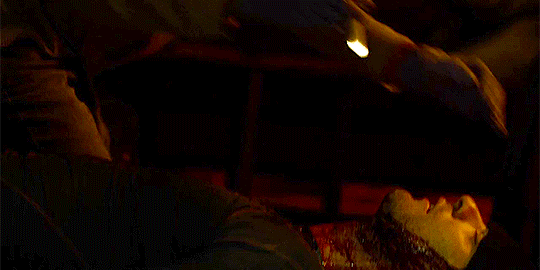
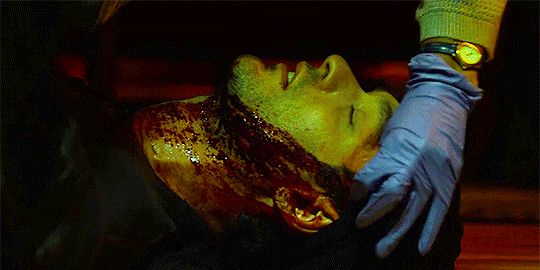



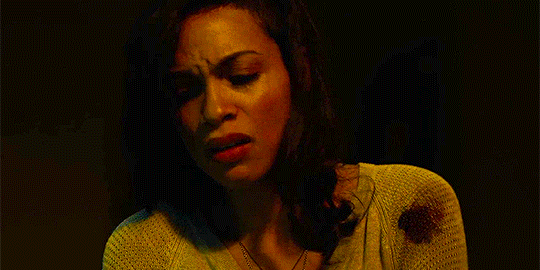

Daredevil S01E02
↳ RFW's Favorite Daredevil Whump Moments (✚)
#daredevil#whumpedit#mcuedit#matt murdock#charlie cox#stabbed#blood#unconscious#gore#stab wounds#waking up#claire temple#ep: cut man#daredevil 1x02#field care#assessment#no hospitals#pulse checking
243 notes
·
View notes
Note
since you typically recommend the EASE and the EAWE as resources, I'd like to also recommend the Perceptual Aberration Scale (PAS; Chapman, Chapman, & Raulin, 1978) and Magical Ideation Scale (MIS; Eckblad & Chapman, 1983) - they may be a tad old, but the book i'm reading (Psychosis, Trauma and Dissociation) mentions that they're widely used in measuring schizotypy and tend to be used in professional studies when assessing for schizotypy in a person! I'm not sure if they can be found online easy or not since I haven't looked yet, but I wanted to put the info out there anyways.
thank you for the info!
34 notes
·
View notes
Text
We are what we
are what we never
think we are.
— Sonia Sanchez, from "Personal Letter No. 3" in Power Poetry
10 notes
·
View notes
Text


how are we on assessment week already? we just started uni 🥲
reminder to never start an essay just 24 hours before it's due, cuz while I am almost done and will submit it in time, it's not worth all the stress and coffee
#studyblr#100 days of productivity#adhd studyblr#bookblr#studyspo#productivity#uniblr#university#assessment
14 notes
·
View notes
Text
Study Diary #1
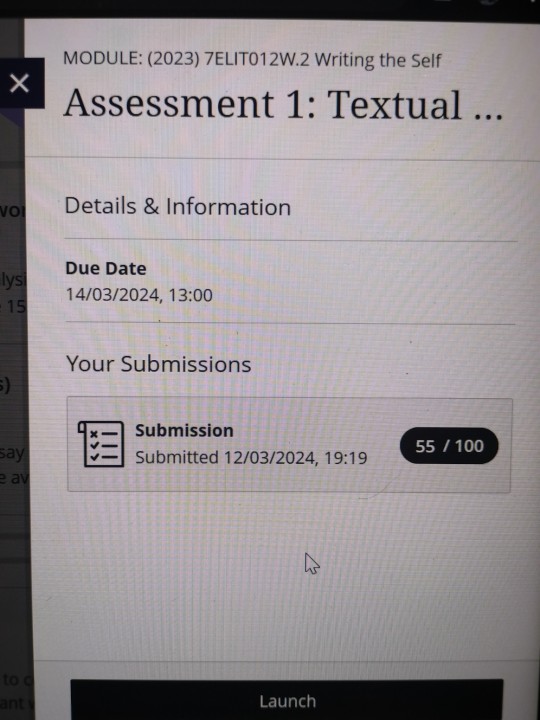
I had worked really hard on this assessment and was expecting a really good grade. But that did not happen. I am so angry at myself for not doing better and I just can't shake off the feeling of being a disappointment. I couldn't share this with my friends or family because I am so embarrassed about this. But I needed to get this off my chest so what better way than Tumblr. I have more submissions coming up and hopefully none of them end up like this.
#studying#studyblr#study blog#study aesthetic#academic validation#assessment#studycore#study diary#dark academia#study english#study with me
5 notes
·
View notes
Text
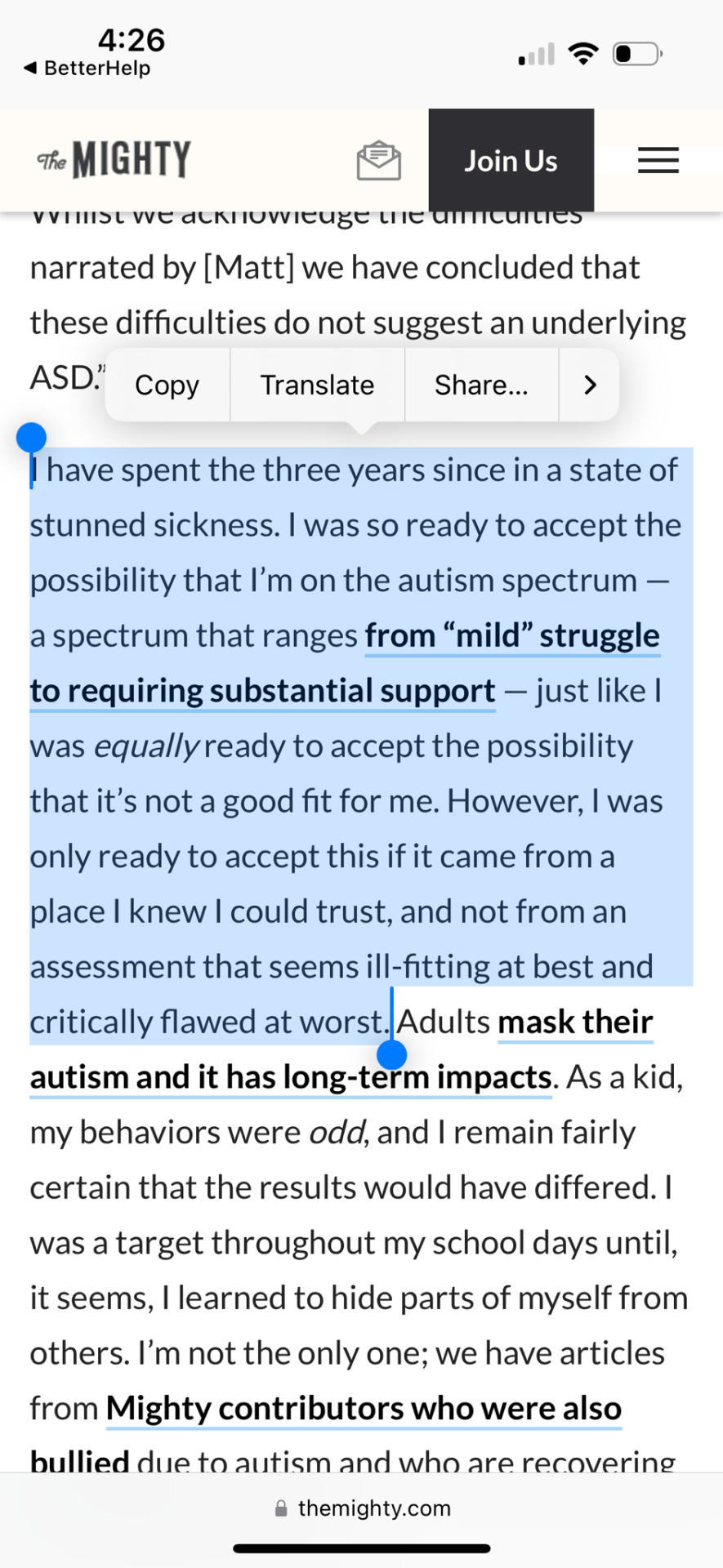
I just have to share this article my therapist sent to me because it describes my experience almost exactly but this part specifically hit me hard in the chest when I read it
Link to full article:
#neurodivergent#neurodiversity#asd#autistic adult#actually autistic#actually neurodiverse#neurodiverse stuff#neurospicy#assessment#masking#ASD adult#ableism#ableist bullshit
4 notes
·
View notes
Text

Just finished teaching a shoulder and pelvis class locally, and at the end the students found out I would not be teaching them anymore through their entry level journey.
What was fun was realizing how much I use cranial as assessment…occasionally treatment. In this case found, an abdominal scar that when treated released the reactive parietal bone.
The entire body communicates through reflexes and nerves and fascia, and all that information is stored in the hub of your cranium.
A shift in pressure, fluids, proprioception all goes back and forth between body and brain.
You can learn to listen to these things and have a conversation with body, mostly -learn to listen.
[Adaptable Polarity]
[@ahsya.dp]
#Adaptable Polarity#polarity#cranial therapy#assessment#bodywork#Structural Integration Atlanta#technique#Body Alive
4 notes
·
View notes
Text
I got my adult autism assessment handbook and it's already such a thrilling resource.
It's aimed at providers but it's so far not dense or complicated, and definitely has a strong advocacy, anti ableism and justice perspective. So it's possibly of interest to plenty of folks curious about neurodiversity.
Link if you're curious https://us.jkp.com/products/the-adult-autism-assessment-handbook
8 notes
·
View notes
Text
I'm in the process of autism assessment and I've been on a waiting list for 3 years but I finally have an appointment in 2 weeks. Before that I got a phone call and my parents also had a virtual meeting without me, which I found strange cause this is supposed to be about me. Anyway, my appointment in 2 weeks is with my parents and I'm really uncomfortable about that because I feel like it will change my behaviors and make me mask even more. Also, I'm 18. I'm an adult. I do not want an appointment with my parents and I do not want my diagnosis to be based on their opinion. They are supportive but I can tell they don't think I am autistic. I also mask more around them because I feel like I disappoint and annoy them when I show more obvious trait. I don't understand the diagnosis process, can someone who went through it help me?
#prepare for autistic assessment#autism#late diagnose autistic#aroace#asexual#lgbt pride#arospec#actually aro#autistic girl#masking#assessment#diagnosis#anxiety
4 notes
·
View notes
Text
Life will definitely get overwhelming because of the simple truth that your fate is unknown and there will be days when there'll be a shower of unexpected & uninvited surprises. Always keep the habit of secluding yourself a little, to actually step out from the heat of the situation because that's the only way you could think clearly. The very first attack will be on your stability, so please ensure that you always remain grounded. The only way being to get a clear assessment of the situation at hand and for that end you must sharpen your insight & the ability to see through the events happening. Keep practising this habit of pulling back for a little while, to seclude oneself for some time until you master this skill of self evaluation and reassessment. After sometime, you'll not even have the need to step out. Right at the middle of the storm, you'll be able to tackle the situation, see it through & still remain grounded. But until you reach that level of proficiency, its always advisable to pull yourself back a little - in silence, in seclusion. A retreat is always essential to come back with a greater vigour and force...
Random Xpressions
11 notes
·
View notes
Text
Unleash Your Learning Potential: The Feynman Technique 🚀
Student life often comes with the challenge of grappling with complex concepts and information. The Feynman Technique, named after the Nobel Prize-winning physicist Richard Feynman, is a simple yet powerful method to master any subject, especially the trickiest ones.
What is the Feynman Technique? The Feynman Technique comprises four straightforward steps:
Select a Concept: Pick the concept, topic, or subject you wish to master or study. It could be a tough textbook chapter, a complex theory, or a brand-new idea.
Teach It Simply: Imagine you're explaining the chosen concept to someone else—whether a friend, a family member, or an imaginary student. Use everyday language and real-life examples to make it as clear as possible.
Identify Gaps: While you explain the concept, you might stumble upon gaps in your knowledge or areas where you struggle to simplify it. These gaps highlight where you need to focus your learning efforts.
Review and Simplify: Return to your study materials (like textbooks, lecture notes, or online resources) to fill in those knowledge gaps and deepen your understanding. Keep breaking down complex ideas into simpler terms until you can explain the concept effortlessly.
Why Does It Work? The Feynman Technique capitalizes on various effective learning principles:
Simplified Understanding: Teaching a complex topic in simple terms forces you to dissect it into its fundamental components. This clarifies your own understanding and ensures you grasp the concept at its core.
Identifying Gaps: When you struggle to explain a concept, it shines a light on areas of uncertainty or incomplete knowledge. This self-assessment guides your further study.
Active Engagement: Actively teaching and explaining a concept engages your brain far more effectively than passive reading or note-taking.
Repetition: Revisiting the concept multiple times during explanation and review phases reinforces your memory and understanding.
Effective Communication: Developing the ability to convey complex ideas in simple terms is a valuable skill that can enhance your academic and professional success.
How to Apply the Feynman Technique: Let's break down how to put the Feynman Technique into practice:
Select Your Topic: Choose a concept, theory, or subject that you find challenging or want to master.
Explain It to a Friend: Imagine you're teaching this topic to a friend with no prior knowledge of the subject. Use everyday language and real-world examples to make it accessible.
Identify Your Knowledge Gaps: As you explain, pay attention to areas where you struggle to simplify or clarify. These are your knowledge gaps.
Review Your Materials: Return to your study materials (textbooks, lecture notes, online resources) to fill in the gaps and deepen your understanding.
Repeat as Needed: Keep going until you can effortlessly teach the concept to your imaginary friend, using simple language and clear examples.
Test Yourself: To cement your understanding, test yourself by explaining the concept without looking at your notes or study materials.
#Essay#Research paper#Case Study#Term Paper#Coursework#Application essay#Article review#Article critique#Proofreading#Math#Statistics#Finance problem#Thesis paper#Rewrite#Speaker#Notes#Admission essay#Assessment#essay tips#student tips#study tips#writing tips#tips and tricks#tips for writers#tips#life hacks#writing#university#college#expert
8 notes
·
View notes
Text
It's official. I have the stupidest GP of all time.
I have a referral for a psych to get an ASD assessment... but that doctor doesn't work there anymore and the clinic DOESN'T EVEN HAVE AN AUTISM SPECIALIST!
Are you fucking kidding me??
6 notes
·
View notes
Text

#english in madrid#english#english language#learning languages#learning english#english as a second language#english as a foreign language#english words#assessment
6 notes
·
View notes
Text

Lighthouse - concept art
6 notes
·
View notes
Text
The day after the assessment
Today is my first day back home after a trip away for an autism assessment. Due to a room booking fiasco we couldn't complete the session, but it looks like I am very likely autistic, with the possibility that I also have ADHD. This is all complicated by childhood trauma from bullying.
I've been suspecting this for a while, so it's not a huge shock. But now it looks like being confirmed, I need to think about what to do next.
The strangest thing about the assessment was when I talked about masking. I've spent years struggling to pass as normal, and I'm not sure who the real me is. A lot of my masking is about suppressing the rage I feel at the world's frustrations. Is that the person that would be there without the masking? Or there is another person below that?
Talking about this felt a little like a seance. There was a long time when the bullying made me feel like one version of me had died at school. Talking about my deepest feelings was like channeling a long-lost version of myself.
In another session recently, someone asked if I enjoyed my hobbies and I don't think I do. I'm doing so much because I think I should. I tried to think of things I that make me genuinely happy and came up with one: dogs. Today, walking without listening to a podcast, I figured I could add a decent walk.
The idea of unmasking is complicated by the fact that I like masking in some contexts. Work involves formalised social interactions which I seem to be good at - although it does take a lot of energy. There are times in my life where I don't think I would have survived without pretending to be normal for work, as difficult and unpleasant and unnatural as that probably was. Post-pandemic hybrid working is making this more sustainable than it used to be and I'm not interested in being 'out' as a neurodiverse person at work.
There's a lot I need to think through about masking and I find it helpful to write my feelings on this (as E.M. Forster wrote, “How do I know what I think until I see what I say?”). Hence this secret little blog, unconnected to the rest of my online life, as best as I can manage.
But my first thing to do is to slow down a lot of things. Before having my assessment, I assumed the best thing to do in response to my difficulties was to 'try harder'. Without knowing why things were difficult, this never really worked. My approach to diet, hobbies, exercise and more is making me feel worse not better. Time to make some space for myself, so I can find out who I am.
5 notes
·
View notes